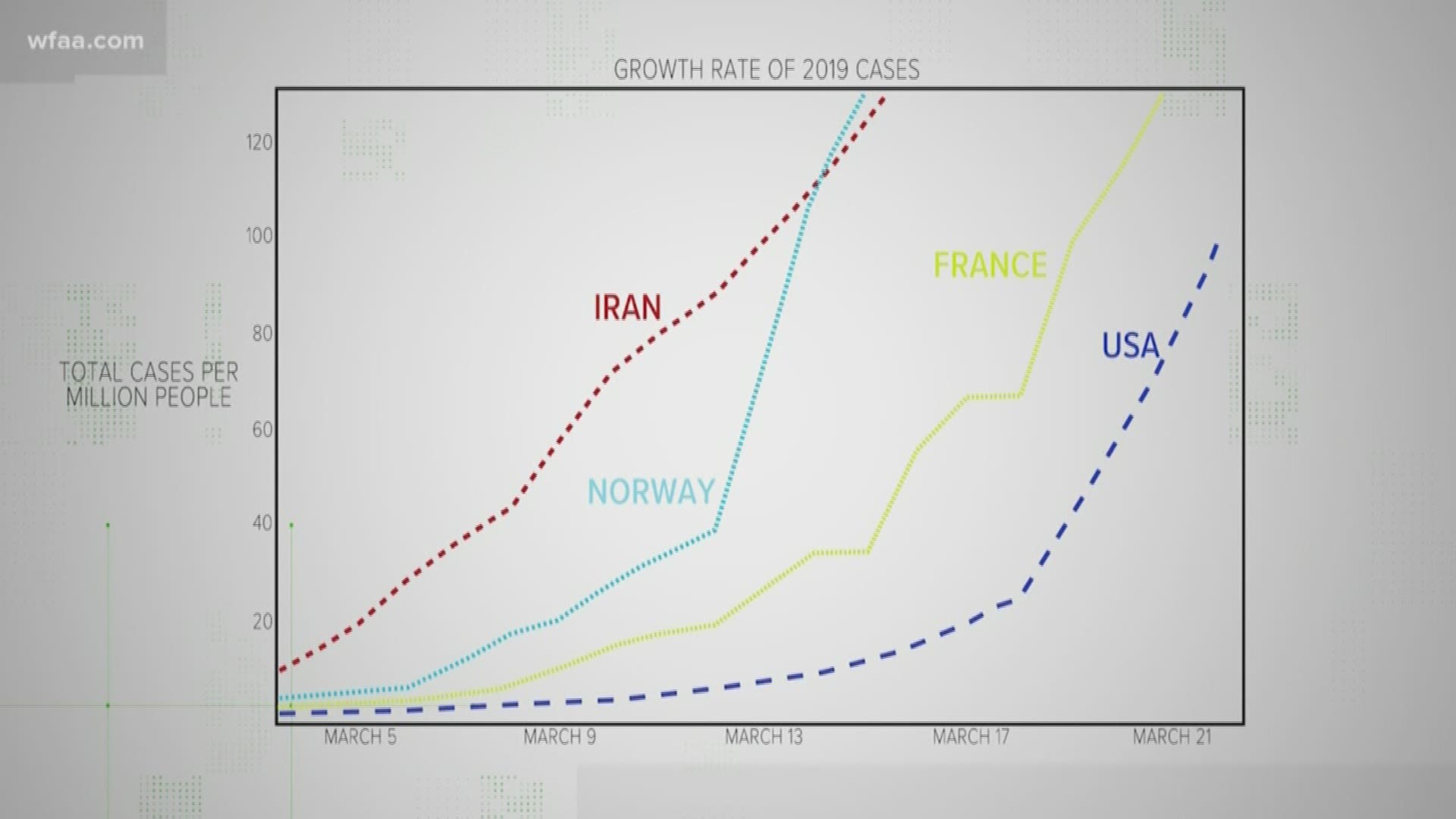DALLAS — Scientific research on the coronavirus is moving fast. Here's an update on some early data analysis concerning the question, "Will warm weather kill the virus?
In fact, I responded to this very question just last week.
But now there is a new report from Massachusetts Institute of Technology that is co-written by Dr. Qasim Bukhari.
He looked at the growth curve of the virus in countries around the world and compared that to the how hot and humid those countries are.
“Are you sort of finding a sweet spot between humidity and cases?” I asked him.
“That's what it seems like. So, this is what it seems like looking at the data,” Dr. Bukhari said.
Dr. Bukhari's study, called "Will coronavirus pandemic diminish in summer?" looked at 320,000 worldwide COVID-19 cases.
He found 90% of transmissions, through March 22, have occurred in regions that are cooler and drier.
For example, the growth rate accelerated faster in Iran, Norway, France, and the United States. But it was much slower in warmer, more humid countries like Singapore, Thailand and Indonesia.
“What it means is in cold and dry countries you may need to take more efforts,” he said.
Dr. Buhkari found a similar pattern in the US. Cooler, drier places like New York, Washington and New Jersey have higher growth rates than Texas, Georgia, California, Florida and Arizona. This pattern is similar to what researchers know about many other, but not all, viruses.
However, this is a preliminary study that has not gone through regular scientific scrutiny. And Dr. Bukhari said other factors are also at play, like travel restrictions, social distancing and the extent of underlying medical conditions.
There's still a lot to learn.
“We don't know if temperature is more important. We don’t know if humidity is more important. Or we don't know if both of them are equally important,” he said.
So, early indications are that cooler, drier places are at a disadvantage when it comes to fighting the infection. But when it comes to the question, will warm weather kill the virus? The answer is still unknown.
More on WFAA:
- VERIFY: CDC, WHO do not recommend homemade masks
- VERIFY: What are plasma treatments for COVID-19?
- VERIFY: Yes, cruise ships are often registered in foreign countries
- VERIFY: Yes, a sudden loss of smell or taste might be an indicator of COVID-19
- VERIFY: No suggestion coronavirus transmits via food, but practice good hygiene anyway

